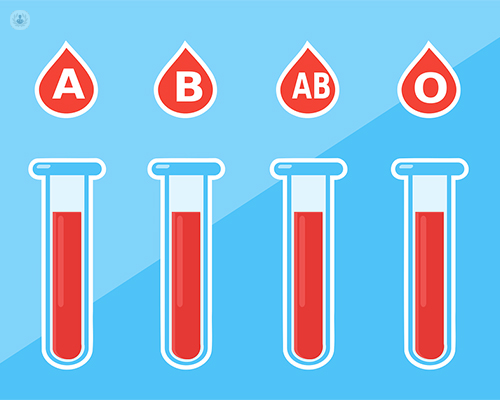Vasculitis
Dr Gagandeep Kaur Takhar - Rheumatology
Created on: 11-13-2012
Updated on: 06-13-2023
Edited by: Conor Lynch

What is vasculitis?
Vasculitis is an inflammation of the blood vessels. It occurs when the immune system mistakenly attacks the blood vessels, whether because of an infection, medication, or another disease. This can limit blood flow and cause damage to organs and tissues.
It can affect veins, arteries, and capillaries. When a blood vessel becomes inflamed it can:
- make it difficult for blood to flow through, since the vessel becomes narrower
- close completely, preventing the blood from flowing through
- stretch and weaken so much that it bulges. This is known as an aneurysm, and if it bursts, it can cause dangerous bleeding into the body.
There are many types of vasculitis, but most are rare. However, vasculitis may affect one or more organs and may be long-lasting (chronic) or short-lived (acute). This condition can affect anyone, although some types of vasculitis are more common in certain groups of people and among those who suffer from particular diseases.
Types of vasculitis include:
- Larger arteries (aorta and main branches): giant cell arteritis, Takayasu arteritis, spondyloarthropathy-associated aortitis, isolated aortitis and aortitis associated with Cogan syndrome
- Medium-sized arteries: polyarteritis nodosa and Kawasaki disease
- Small- and medium-sized arteries: ANCA-associated vasculitis, granulomatosis with polyangiitis, microscopic polyangiitis, primary vasculitis of the central nervous system and eosinophilic granulomatosis with polyangiitis
- Small arteries: lgA vasculitis (Henoch-Schönlein purpura), vasculitis associated with rheumatoid arthritis, vasculitis associated with systemic lupus erythematosus and Sjögren’s syndrome, anti-GBM disease (Goodpasture’s syndrome), cryoglobulinaemic vasculitis and drug-induced vasculitis
- Arteries and veins of different sizes: relapsing polychondritis and Behçet's disease.
What is the prognosis of vasculitis?
Vasculitis can be short-term or can last a lifetime. The principal aim of the specialist is to prevent the death or disability of the sufferer, as well as to prevent irreparable damage to vital organs and nerves. The symptoms of vasculitis can severely impair a person’s life (fatigue, pain, arthritis, etc.). In addition, the side effects of certain drugs can make the person more vulnerable to certain infections.
What are the main symptoms of vasculitis?
The symptoms of vasculitis usually include fever, tiredness, headache, rash, night sweats, weight loss and local clinical manifestations in some parts of the body as blood flow decreases. This leads to ischemia or visceral infarction due to blood vessel occlusion, causing abdominal pain, renal failure and neurological symptoms, among others.
How is vasculitis diagnosed?
Diagnosis of the disease will be made with a tissue biopsy, blood tests and angiograms to detect abnormalities in the blood vessels. These tests will enable a diagnosis of the type of vasculitis based on blood vessel size and the organs affected.
What causes vasculitis?
The exact cause of most types of vasculitis is unknown. It may be influenced by genetic factors and is also considered to be an autoimmune disease (the immune system attacks the body, in this case the blood vessels). It can also be caused by a reaction to certain drugs.
Additionally, it can sometimes be associated with rheumatic diseases, such as systemic lupus erythematosus, rheumatoid arthritis and Sjögren's syndrome.
Vasculitis can occur at any age and affect people of any race or gender. However, some factors can increase the risk of vasculitis, including:
- having chronic hepatitis B or C
- having an autoimmune disease such as scleroderma, lupus, or rheumatoid arthritis
- smoking
How can vasculitis be treated?
Vasculitis should be treated mainly with glucocorticoids (steroids). These are drugs that help reduce inflammation but may also have side effects. Immunosuppressive treatments, which are normally used to treat rheumatic diseases, are sometimes recommended, since they have less serious side effects.
Vasculitis can cause serious damage to some parts of the body. In such cases, surgery may be recommended. The intervention will depend on the location and severity of the damage. A revascularisation graft (surgery to bypass the affected area of the blood vessel) may be helpful, as may sinus surgery or a kidney transplant.

Which specialist treats it?
It is usually rheumatologists who treat vasculitis, focusing on people with chronic diseases affecting the joints and connective tissues. However, anyone who has vasculitis should also consult specialists who treat the specific organs affected. They can also be seen by specialists in vascular surgery, internal medicine, dermatology, neurology, ophthalmology, otorhinolaryngology, or nephrology.
Is vasculitis curable?
Thankfully, in most cases, the vast majority of the different types of vasculitis can be treated if they are detected at an early stage. As it stands, vasculitis is not curable, but treatment can ensure patients avoid detrimental organ damage.
Is vasculitis contagious?
No, vasculitis is not contagious, nor is it hereditary.
Can diet affect my chances of having vasculitis?
There is currently no evidence to suggest that diet affects one's chances of contracting vasculitis.
What age group is generally affected most by vasculitis?
Although both young people and infants can be affected by vasculitis, the disease is typically diagnosed when an individual is over the age of 50.
How often should patients with vasculitis see a consultant?
Patients will be monitored and seen at very regular intervals, with continuous and thorough monitoring a priority for consultants when it comes to helping to treat an individual with vasculitis.








